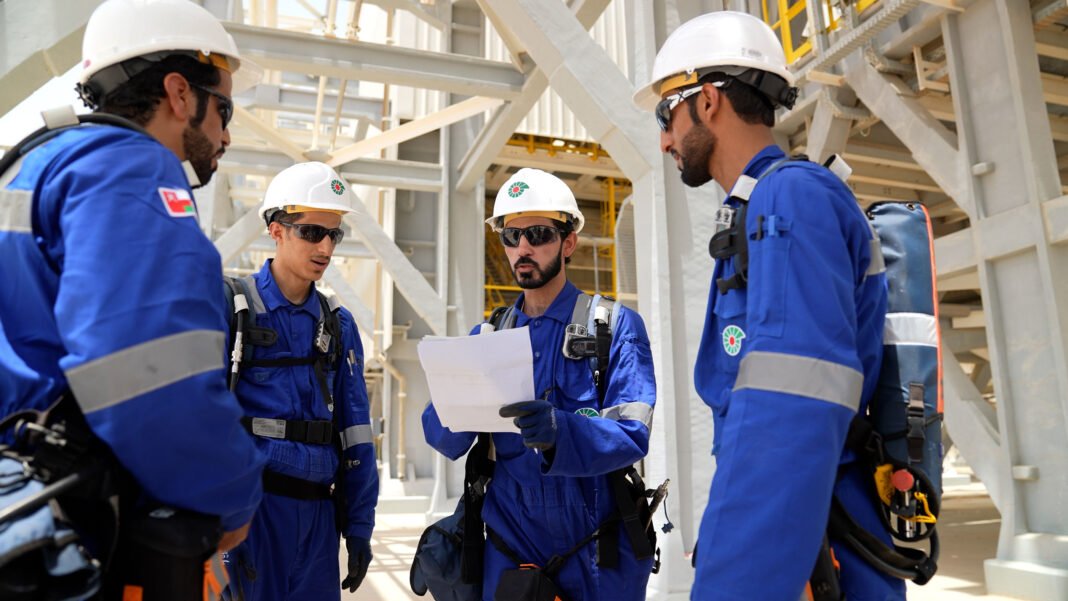For Cleaner oil and gas production Oman is committed to continue its oil and gas production while embracing cleaner, more sustainable methods. The country’s Minister of Energy and Minerals, Eng. Salim Nasser al Aufi, discussed this during a panel at the Advantage Oman Forum. He emphasized that Oman will maintain oil and gas output but take steps to reduce its environmental impact.
Al Aufi noted that Oman will balance its energy transition goals with sustainable production practices. He explained, “We are not stopping hydrocarbon production, but we aim to make it cleaner.” One key step involves eliminating routine flaring by 2030. The country also plans to reduce methane emissions within the same time frame.
Oman is integrating renewable energy solutions into the oil and gas sector. The government encourages companies to use renewable sources to power hydrocarbon operations. In some areas, solar thermal energy supports enhanced oil recovery (EOR) operations.
Another innovative solution Oman is exploring is methanation. The process converts carbon dioxide into methane using hydrogen. A pilot project will focus on using CO₂ collected from industries and combining it with hydrogen to create synthetic natural gas. This gas could potentially be used in LNG production.
Oman is also working to reduce the carbon impact of transportation in the oil and gas sector. The government is exploring hydrogen-powered and electric vehicles to lower emissions. It is close to completing assessments of hydrogen trucking, while introducing electric vehicles for short-distance travel.
The country is investing in CO₂ capture and sequestration to reduce emissions from industries and Cleaner oil and gas production that are hard to decarbonize. Oman captures CO₂ and stores it underground through advanced projects. Early tests show that 60-70% of the CO₂ injected remains safely stored, helping Oman meet its climate goals.
These efforts are part of Oman’s broader circular economy approach. The strategy focuses on minimizing waste and reusing existing resources to generate value. For example, Oman now uses gas that was once flared to generate electricity. This improves efficiency and reduces emissions across industrial operations.
Al Aufi concluded, “We are not only reducing waste but also creating new economic opportunities for Oman.” He highlighted the importance of balancing economic growth with sustainability.





